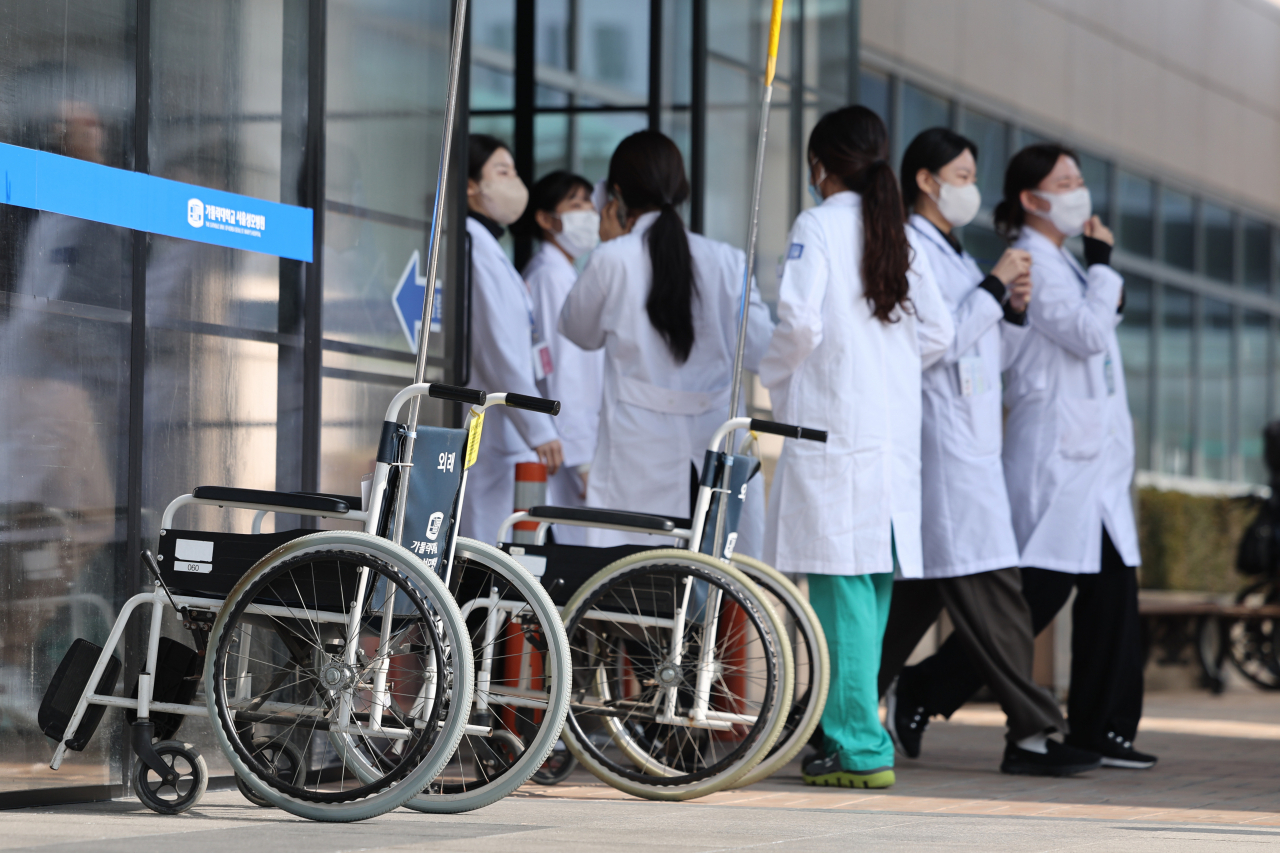Doctors vow massive rallies this week against med school quota hikes
By YonhapPublished : Feb. 12, 2024 - 09:30

Doctors will hold massive rallies across the nation this week in protest of the government's planned hike in the enrollment quota for medical schools amid a looming strike feared to affect the health service, officials said Sunday.
The Korean Medical Association (KMA), a major lobby group for doctors, said it will hold protests nationwide Thursday as a first collective action after the entity went into emergency mode in response to the government's decision to boost the number of medical students.
Last week, the health ministry announced a plan to increase the enrollment quota for medical students by 2,000 next year to over 5,000 in an effort to address the chronic shortage of doctors in rural areas and essential healthcare fields.
Doctors, in response, have threatened to stage a large-scale strike.
Details about the rallies, including how many medical personnel will participate in the upcoming rallies, are yet to be known, the officials said, adding that the KMA is also reviewing holding a meeting involving delegates of doctors nationwide to discuss following moves.
The government has vowed a stern response to deal with any collective action by doctors.
On Sunday, doctors affiliated with the Korea Emergency Medical Association also announced a decision to form an emergency council and join collective action plans led by the KMA.
"What we want is to make decent environments where doctors can save the lives of the people," the association said, calling on the government to come to the dialogue table and cooperate on the quota hike issue.
"If the government does not show signs of improvement, we will all stop providing medical care services," it added.
The medical community has claimed that the quota hike will compromise the quality of medical education and services and that the government should rather find ways to better allocate physicians and boost compensation to solve the chronic shortages of doctors in rural areas and in the "less popular" but essential categories, such as pediatrics and obstetrics.



















![[Today’s K-pop] Treasure to publish magazine for debut anniversary](http://res.heraldm.com/phpwas/restmb_idxmake.php?idx=642&simg=/content/image/2024/07/26/20240726050551_0.jpg&u=)